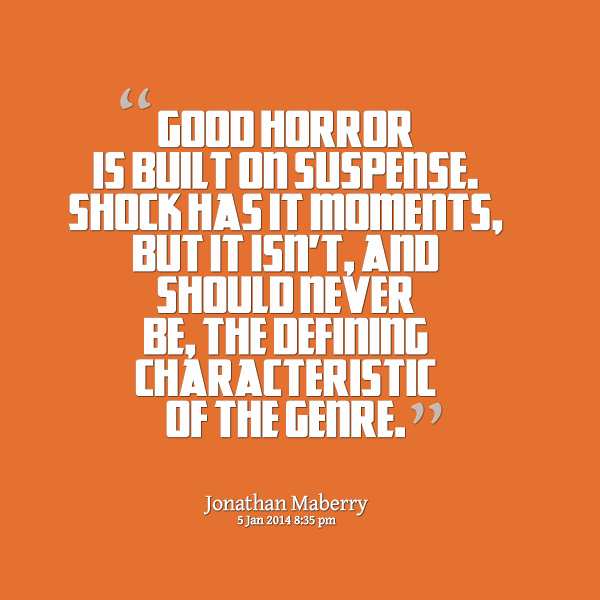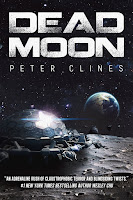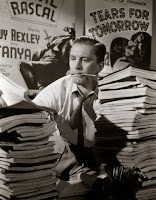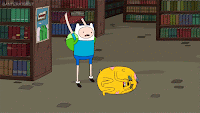Category: tips
August 29, 2019 / 1 Comment
Software Update
 The real issue here is this is like asking if I like ball point pens or rollerball or quills. Everybody has their own preference, for their own reasons, but it doesn’t really matter because we all understand the pen is just a tool. What matters is the manuscript at the end of the process. And seriously—are you going to try to write a novel with a goose quill? Really? Of course you’re not. Everybody knows peacock feathers hold a point better. Plus, you look much more authorly with that big plume waving back and forth while you write.
The real issue here is this is like asking if I like ball point pens or rollerball or quills. Everybody has their own preference, for their own reasons, but it doesn’t really matter because we all understand the pen is just a tool. What matters is the manuscript at the end of the process. And seriously—are you going to try to write a novel with a goose quill? Really? Of course you’re not. Everybody knows peacock feathers hold a point better. Plus, you look much more authorly with that big plume waving back and forth while you write.
 I know a lot of other authors who use Word. And there’s the free knockoff version, Open Office. But I also know some who use a program called Scrivener that you may have heard of. It’s got a lot more bells and whistles than I like, but that’s just me–I know a bunch of folks who swear by it. Weird as it may sound, I know a couple screenwriters who actually wrote books in Final Draft, just because it was familiar to them and comfortable to work in. Heck, I know one writer who actually wrote her first few books on her Blackberry during her downtime at work.
I know a lot of other authors who use Word. And there’s the free knockoff version, Open Office. But I also know some who use a program called Scrivener that you may have heard of. It’s got a lot more bells and whistles than I like, but that’s just me–I know a bunch of folks who swear by it. Weird as it may sound, I know a couple screenwriters who actually wrote books in Final Draft, just because it was familiar to them and comfortable to work in. Heck, I know one writer who actually wrote her first few books on her Blackberry during her downtime at work.
Because that’s what all of this comes down to in the end. What I’m comfortable with. What’s going to let me write with the least amount of distractions. Whatever it is… that’s the correct writing program for me to use. Maybe it’s something with dozens and dozens of features. Maybe it’s something very stripped down and basic. Hell… maybe it’s something so ancient you have to keep an old computer just so you can run it.
Or maybe it’s just a pen and legal pad.
Oh, and hey, speaking of writing, did you know that my book Dead Moon is now available as an ebook for your reading pleasure. It’s been an Audible exclusive for the past six months, but that time has passed and now those of you who prefer reading to listening can enjoy the full horror of being hunted by zombies on the Moon. So… go enjoy it.
Next time, I want to get real for a few minutes.
April 25, 2019
In The Beginning…
When do we “start” writing? When does it count? Is it when we first start thinking about a project? When we actually make some notes or an outline? Or is it not until I write VAMPIRE KAIJU: BOOK ONE by Peter Clines CHAPTER ONE…?
I think that’s worth mentioning, because whenever I see someone talking about writing a book in five weeks or two months or whatever, I always wonder what they’re counting. A finished, polished manuscript? Just the first draft? Are they counting the time they spent outlining, or that they started mulling it over months—maybe years—in advance?
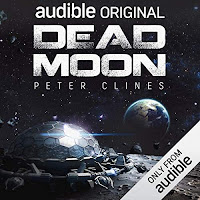 Paradox Bound came out in 2017, but I pitched it to my editor and wrote up a first rough outline back in 2013. And Dead Moon, my new one that just came out on Valentine’s Day? My very first stab at that actually happened back in 2011, right after I finished writing Ex-Patriots. Yeah, it was a different book back then, but still… when I sat down to “start” writing it in 2017, I already had about 30,000 words done.
Paradox Bound came out in 2017, but I pitched it to my editor and wrote up a first rough outline back in 2013. And Dead Moon, my new one that just came out on Valentine’s Day? My very first stab at that actually happened back in 2011, right after I finished writing Ex-Patriots. Yeah, it was a different book back then, but still… when I sat down to “start” writing it in 2017, I already had about 30,000 words done.
So how long did they take to write…?
Again, just think about that the next time you see someone say they wrote something in a short amount of time. Or in a very long amount of time. We all have our own thoughts about what counts as starting and stopping points.
Anyway…
At the risk of sounding arrogant, let me walk you through my process. Well, more of a quick stroll, really. I’ve talked about a lot of this before (so I’ll add a lot of links), and I don’t want to bore you with it since… well, odds are you won’t be doing things this way.
No, seriously, you won’t. The process I use is pretty much unique to me. And the process you use is unique to you—even if maybe you haven’t figured it out yet. Or you’re in the process of evolving from one process to another. I’m just showing off mine to maybe spark some thoughts and help you think about such things.
So… let’s get started.
All of this always starts with an idea. Maybe you’re the type who writes them down, maybe you keep it in your head for a while. I’m 50-50 on it. If an idea really sings in my head right at the start, in any sort of way, I always write it down. But some I mull over for a while. I let them ferment in my brain, see if they grow a little or get a better shape.
Eventually all these notes come together in some form of rough outline. I think we all do some kind of outline. Even the most random of road trips starts with, at the bare minimum, “let’s head west.” Maybe it’s just a page or two of those rough notes. Maybe it’s an extensive beat sheet. It might be a huge stack of color-coded index cards. This stage is really going to come down to “whatever works for you.” The outline I just finished up for this project is twelve pages, with another two page document about the characters, but that’s just me.
And now, I guess, we’re ready to “start” writing.
My first drafts are big, messy things. I write a lot, but I also skip a lot of things. The only goal with a first draft is to get it done. Nothing else matters. Not punctuation, not spelling, not finding the exact right word or crafting the perfect cool line to end that chapter on. These things’ll matter eventually, but right now… I just want to finish this draft.
NaNoWriMo is really all about this. It’s pushing yourself to just focus on finishing a first draft, rather than slowing down to worry about individual scenes and chapters. If you’re especially determined (or masochistic) you could try the 3 Day Novel contest. My partner’s done it a few times now and… well, I just try to keep her supplied with coffee and stay out of her way.
For me. the goal with this draft is to end up with a solid, readable manuscript. Someone should be able to go to page one to page 500 and never hit any weird gaps or confusing typos or anything else that immediately kills the flow.
When I’m all done with this—which can take a week or so—I try to get it in front of a few people I trust. My partner. Old friends who’ve ended up in the storytelling line of work. People who’ve heard me talk about it and people who don’t know a thing about it. The important thing is they’re all going to give me honest thoughts and opinions. Which may sting sometimes, but will be much more useful.
Once I have all these notes from folks, I start my fourth draft. Now I’m going through all these copies one line at a time, taking notes of my own and implementing changes where they’re needed. How many people liked this bit? How many didn’t like that one? Whoops, guess I missed a comma there. Now, having been away from this for a month or so while other folks were reading it, that line’s really dumb, isn’t it? Did I actually think that was deep and clever at some point?
This takes at least a week. Often more. I’m simultaneously reading three or four copies of the book line by line, getting everyone’s thoughts and takes on it. Weighing their thoughts against my own and each others. Sometimes it goes fast, other times… it’s really slow.
And this eventually, finally brings us to the fifth draft. This is me going through the whole thing again to make sure those fourth draft edits didn’t leave anything hanging or tweak a key point. Just a nice, slow read-through.
One thing I like to do at this point is switch the whole thing into another font. If I’ve been writing in , I switch it all over to Courier New. If you’ve been doing that Comic Sans thing, hey, you needed to switch anyway. When I do this, it makes everything sit differently on the page. The words look different. And suddenly passages I’ve been glossing over (after going through this a dozen times) are fresh and new.
And at this point… I wrap it up. I think it’s important to just say “done” and move on to new projects, or else you can get stuck in an endless trap of rewriting again and again. After all these rewrites and edits, there’s not much else I can do.
So that’s my process, beginning to end, in a nutshell.
Speaking of which… next time, I’d like to talk to you a bit about that guy across the street who just said the weirdest thing to me. See him right over… where did he go?
Until then… go write.
March 14, 2019 / 4 Comments
Can We Just Talk a Bit…?
If a character doesn’t sound right, if their dialogue is stilted or unnatural, it’s going to keep me—the reader—from believing in them. And if I can’t believe in them, I cant get invested in them or their goals. Which means I’m not invested in the story and I’m probably going to go listen to music while I organize my LEGO bricks or something like that.
 Again, most of us use contractions in every day speech—scientists, politicians, professors, soldiers, everyone. It’s in our nature to make things quick and simple. Without contractions, dialogue just sounds stilted and wooden. If there’s a reason for someone to speak that way (ESL, robots, Sherlock Holmes, what have you), then by all means do it. If my characters are regular, native English-speaking mortals, though…
Again, most of us use contractions in every day speech—scientists, politicians, professors, soldiers, everyone. It’s in our nature to make things quick and simple. Without contractions, dialogue just sounds stilted and wooden. If there’s a reason for someone to speak that way (ESL, robots, Sherlock Holmes, what have you), then by all means do it. If my characters are regular, native English-speaking mortals, though…I also shouldn’t try to get around this with a “sounding board” character who’s just there to bounce things off. Talking is communication, which means it has to be a two-way street. If I’ve got somebody who serves no purpose in my story except to be the other person in the room while someone thinks out loud… they’re not really serving a purpose.


